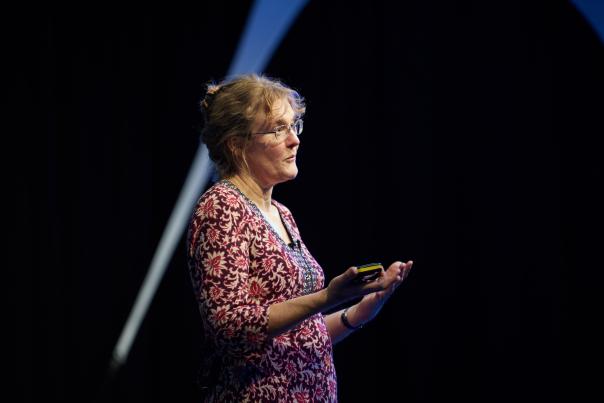
Tackling malnutrition means caterers and dietitians working together and fortifying food in a nutritionally-balanced way to help people who are underweight, rather than simply adding lots of extra fat.
That is the message that dietitian Alison Smith gave to the recent National Association of Care Catering forum.
She said: “Older adults do not have any greater requirement for fat and sugar than the rest of the adult population, even when malnourished. They do, however, have a greater need for protein and some vitamins and minerals.”
She said that this was a distinct change from some of the dietary advice around treating malnutrition that had previously been dispensed.
“Some of the things we’ve said about just adding extra calories isn’t always the best thing. We need to go and talk to the chef in the kitchen and the catering staff. Care home caterers have the ideal skill set to support and enable this approach.
“The new approach should be food-based, providing a range of nutrients and not just extra calories, or supplements. Don’t use butter or cream as a fortifier, just use it where you normally would on bread or in cooking. This means a slight re-think for some people of what we do and what we mean by food fortification.
“Just gaining fat mass doesn’t enable you to do anything more, it just ticks a box. If someone is malnourished and they gain weight, we have to ask what that has achieved. If they gain muscle weight, it helps increase mobility and strength and is a good thing.
“Gaining weight doesn’t do anything for you. The important thing is, has your functionality improved? Or your quality of life? Can you pick up a cup of tea because your muscle density has increased slightly?
“The challenge then is how do we measure these improvements. If we’re told a person needs to gain weight, then we need to ask ‘why?’. It’s okay to question something we’re told like this.”
She recommends a ‘nutrient dense’ approach to diet, one which is backed by the British Dietetic Association.
“That means foods that contain everything. The best way to think about it is a food that’s designed by nature to support a new life – eggs, milk, seeds or nuts.
“Too much is spent - millions and millions of pounds - on oral supplements such as milk shakes, for example, but you can easily make one that is significantly cheaper, uses regular food and tastes nicer.”
She told her audience that they might need to review the guidance of their care home or local authority to see if there was reference to fat in it.
“If there is then a conversation is needed to talk about nutrient-dense instead.”
Alison has written a guide called ‘Creating A Fortified Diet for Care Home Caterers’, which has now also got the endorsement of the National Association of Care Catering.
She told the NACC forum: “I’ve collected some recipes that I have looked at and thought that they are nutrient dense. There’s nothing magic about them, they are just ordinary foods.
“I’m not saying you’ve got to use these, but they can give you ideas.”
As well as her role as a prescribing support consultant dietitian Alison has been a committee member of Older People Specialist Group and Optimising Nutrition Prescribing Specialist Group for 12 years, four as chair.